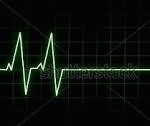Thoughts on the “End of Life”
What is your definition of death? Is it the same as “the end of life”?
 Based on survey responses from the participants in my seminars on the Bio-Ethics of Aging, the answer depends on whom you ask. What stands out, from their responses, is that discussions of end-of-life issues are fraught with potential for misunderstanding, as the same words mean different things to different people.
Based on survey responses from the participants in my seminars on the Bio-Ethics of Aging, the answer depends on whom you ask. What stands out, from their responses, is that discussions of end-of-life issues are fraught with potential for misunderstanding, as the same words mean different things to different people.
For example, most participants defined death in terms that pointed to the cessation of lung and heart function. A few defined it as the cessation of brain function. Both are accepted medical criteria, but they can result in very different conclusions in different circumstances. Moreover, under current medical practice, policies and procedures to establish the time and fact of death may vary from state to state and from hospital to hospital within each state.
What counts, when you are facing the actual or imminent death of a family member is not your definition of death, but the opinions of your doctor and/or the policies of your hospital. Do you know what they are?
By contrast, the respondents offered definitions for “end of life” that covered a much broader spectrum. A few individuals defined it in medical terms, often based on religious beliefs. What I had not expected was that so many participants would define it in terms of the ability to engage in everyday activities—and that there were almost as many definitions as there were respondents to the questionnaire.
For example, some defined it in terms of the end of “useful life”—the inability to contribute in some way, be it financial, emotional, or simply helping with the grandkids. Others defined it in terms of loss of dignity, e.g., the point at which you can no longer take care of yourself. Some defined it in terms of the mental or physical capacity to participate in everyday activities at some—for the most part, undefined—level.
What was clear, from these responses, was that not being dead was not the same as being alive. But these definitions left many questions unanswered, and offered little guidance for someone having to make a decision about a medical treatment that would prevent biological death, but would not return your parent or spouse to the kind of life they wanted.
The issue matters. I know from painful, personal experience that it is so easy, when you’re struggling to cope with a traumatic situation, to let your physician make all the decisions. When my mother fell and broke her hip, her Alzheimers had already advanced to the point where she could not reliably dress, bathe or get herself to the bathroom. She was not dead, but neither was she alive by her definition; her wish to be dead in that situation was very clear.
Even so, she was sent automatically to the hospital, where I seemed to have no choice but to authorize surgery to repair her hip, an operation from which she never recovered enough to even use a walker. She was even less alive than before the surgery.
The incident prompted my brother and I to research our options in the event of additional trauma. Our decision, with which many may disagree, was that we’d keep her comfortable but would not authorize any treatment that required hospitalization or would delay the death she so clearly wanted.
When my mother’s physician disagreed, we found a new physician who shared our point of view. To this day, however, I cringe to think of how it difficult it would have been for my brother and me if the first we learned of our doctor’s definition of “end of life” was when my mother was a candidate for treatment of cancer or a urinary infection … and when we did not yet know what our legal and medical options were.
If you’ve never talked about this with your family or your physician, maybe it’s time. What most of us want, when an end-of-life occasion arises, is the ability to deal with an already difficult situation with love, compassion and the certainty that you are doing the “right thing.” Are you prepared?
The post Thoughts on the “End of Life” appeared first on Mary Gottschalk - Author.



